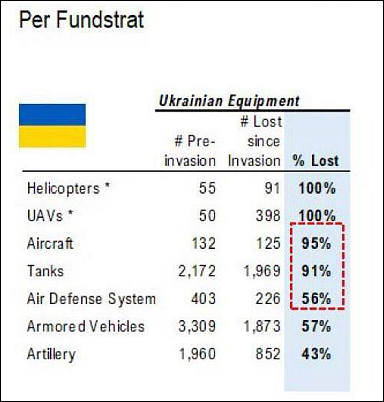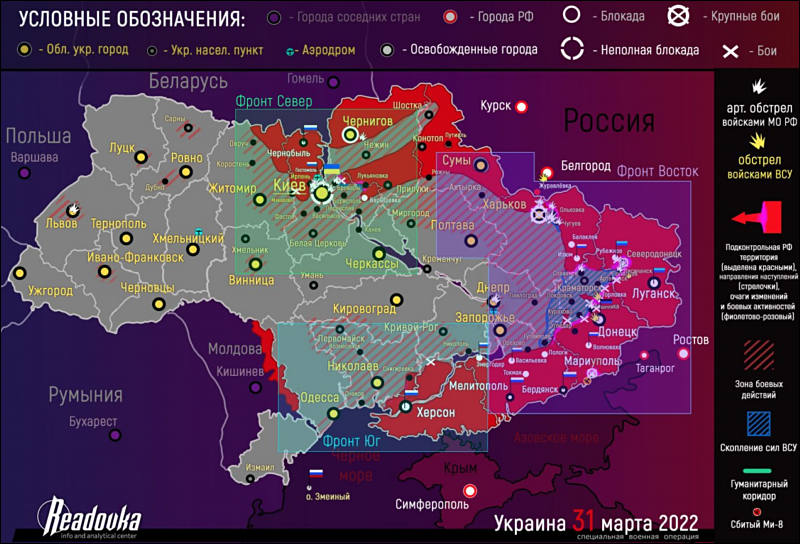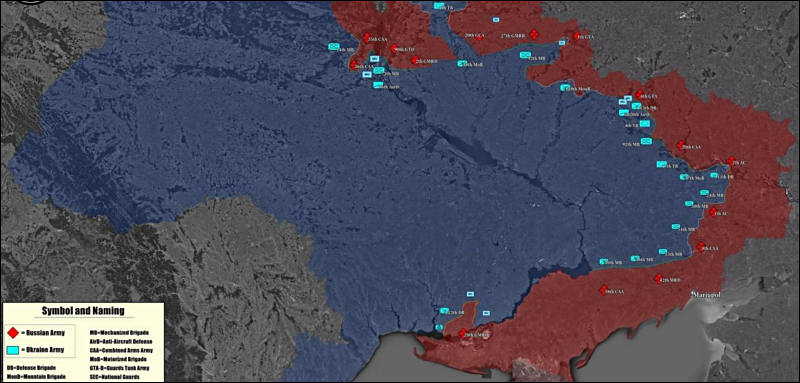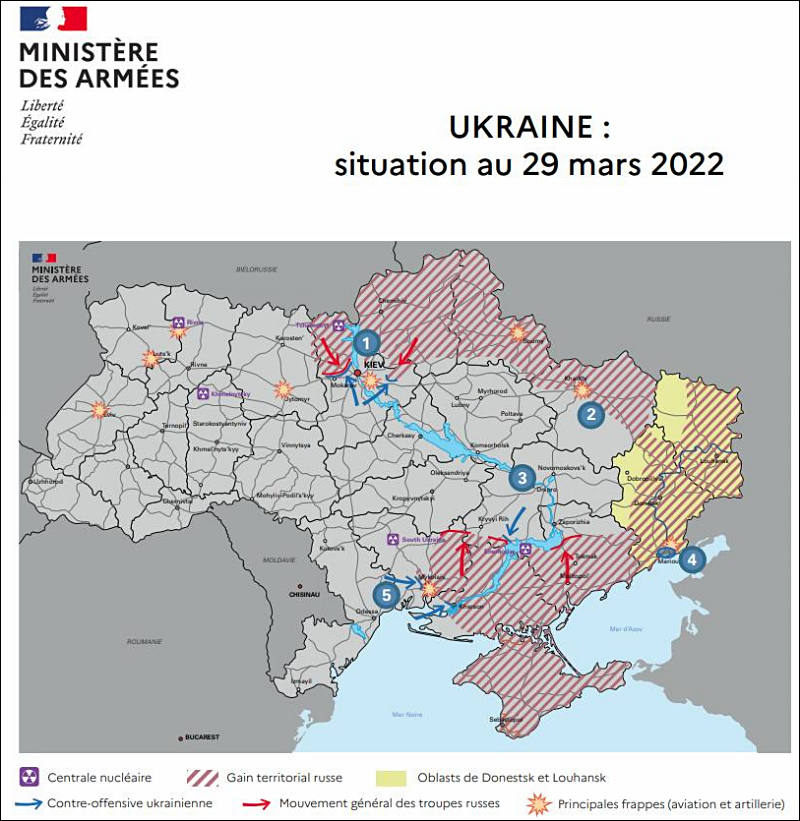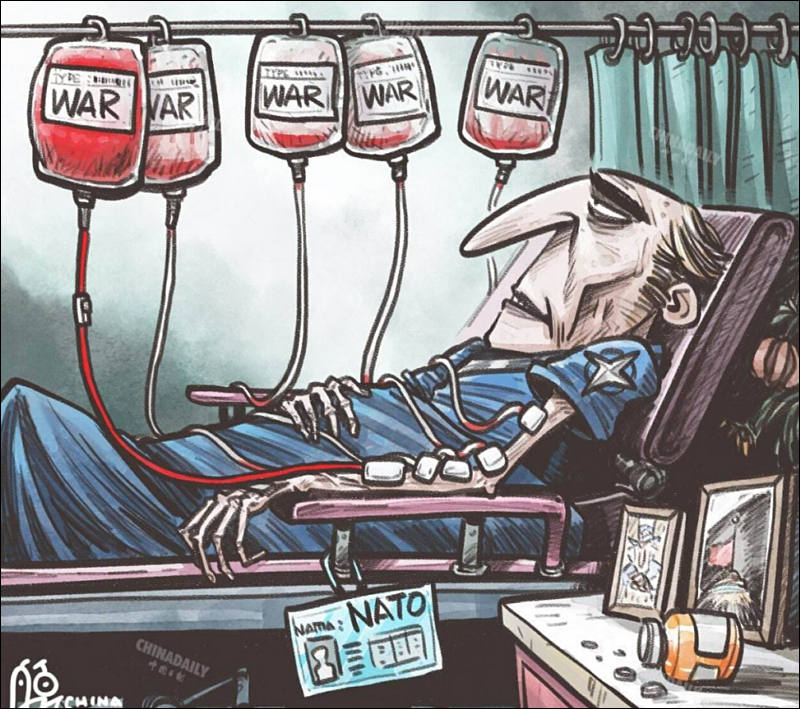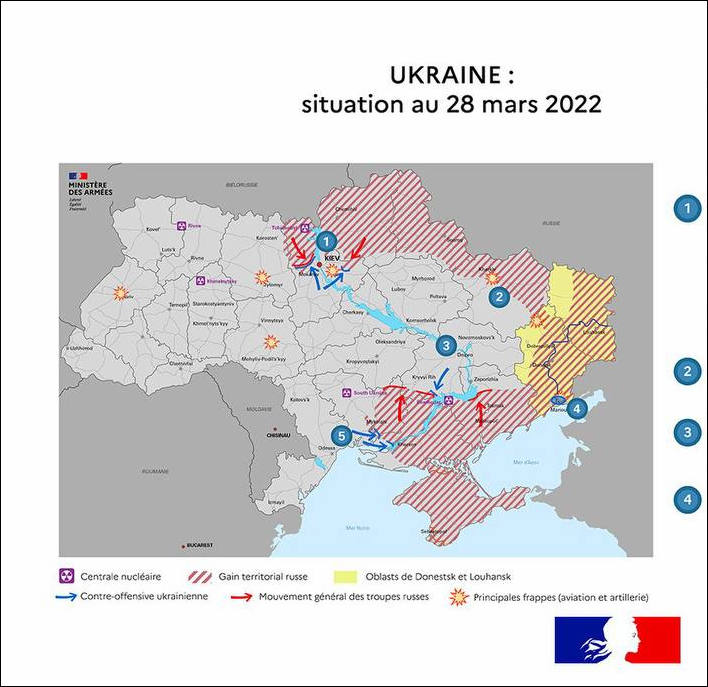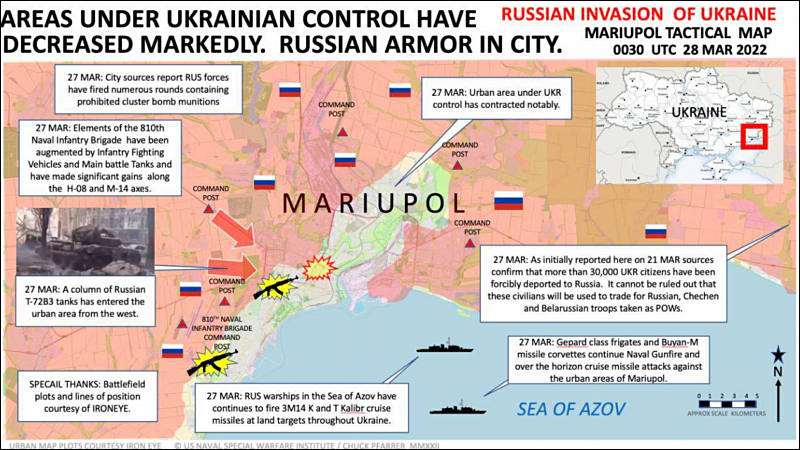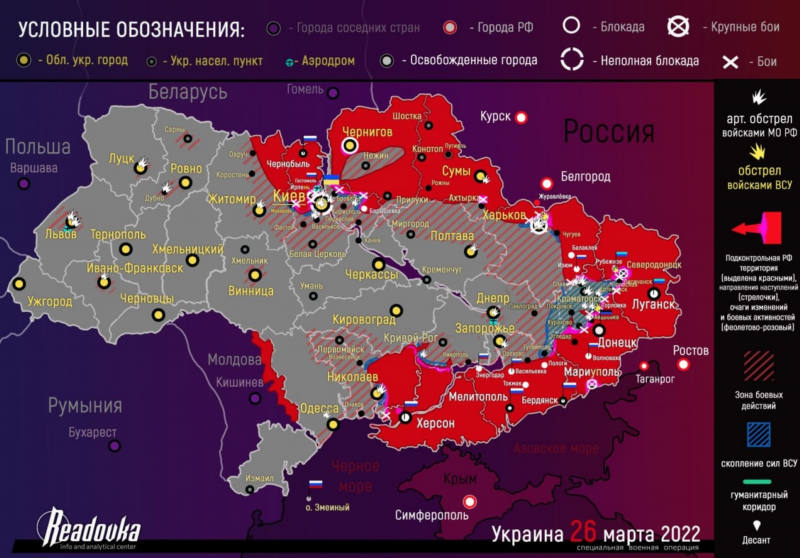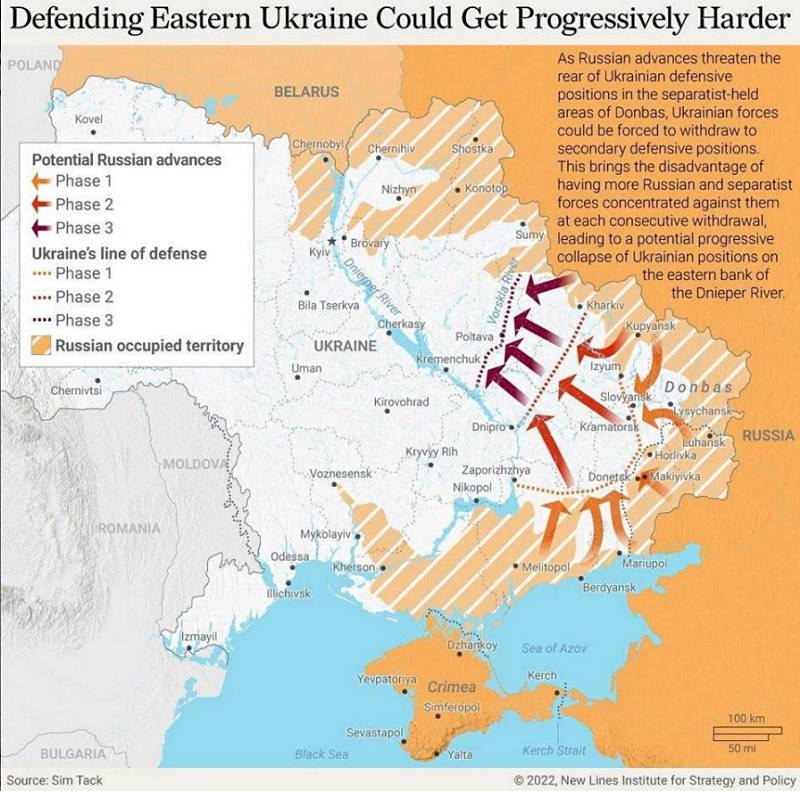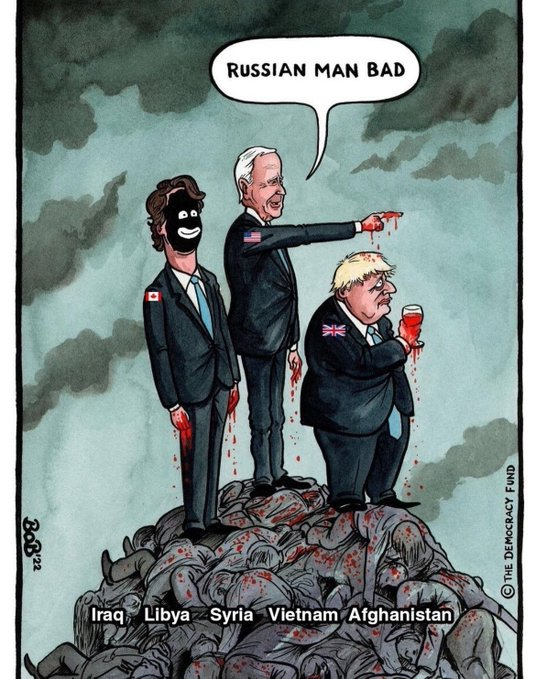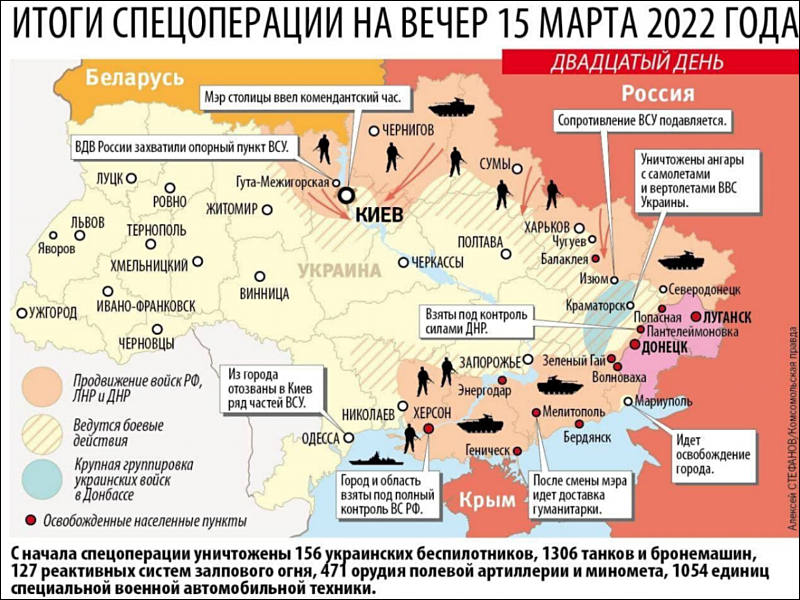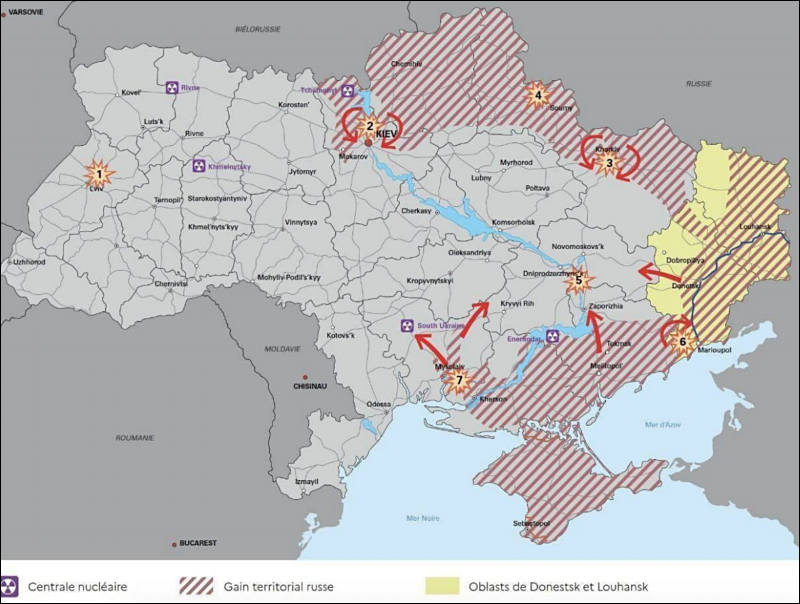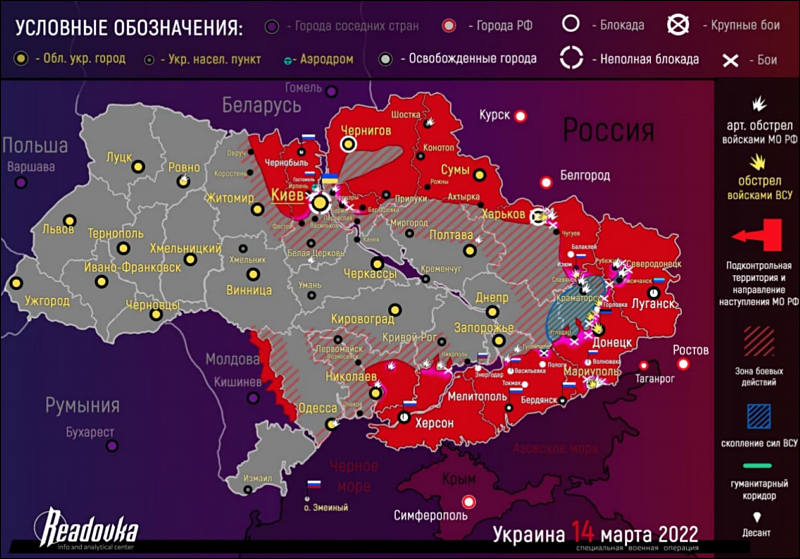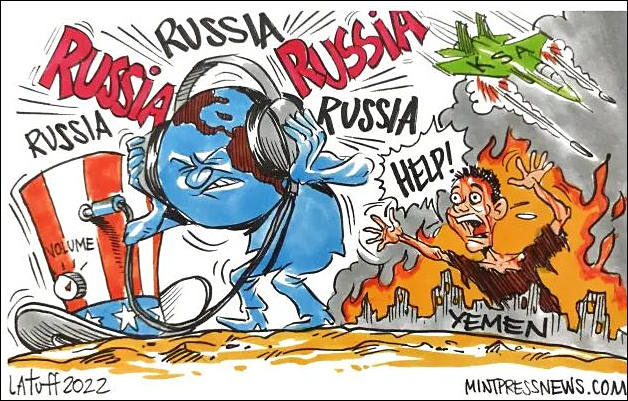
-
Special topic.
It is expected that full scale war will begin in few hours.
-
"The chief physician of Volnovakha Central Hospital (Ukraine): The Ukrainian "heroic" army occupied the hospital, mined the entrance to the Intensive Care Unit, then left the hospital and later bombed the building."
-
From what i read it talks about foreigners fighters who for what is reported come from differents states not only us...and it happened after the military operetion begun...of course us imperialism is still alive and needs to be stopped but tell that russia was compelled to launch a defensive military operation it's not true in my opinion...
-
If anyone is wondering why Russia was compelled to launch a defensive military operation in protection of her own soverignty, the following article from the Atlantic Newspaper Magazine provides incontrovestible proof that the US military is sending troops into Ukaine to murder Russian troops. US Imperialism is alive and well it seems as this is shows US forces have entered Ukaine. Specifically the Marine Corpse with a complete military unit of 200,000 and equipped with chopper and fighter jet capabilities and of course infantry and special forces units include SEEL Teams
A few nights ago in Lviv, after an early dinner, I stepped into the elevator of my hotel. I was chatting with a colleague when a man in early middle age, dressed and equipped like a backpacker, thrust his hand into the closing door. “You guys American?” he asked. I told him we were, and as he reached for the elevator button, I couldn’t help but notice his dirty hands and the half-moons of filth beneath each fingernail. I also noticed his fleece. It had an eagle, a globe, and an anchor embossed on its left breast. “You a Marine?” I asked. He said he was (or had been—once a Marine, always a Marine), and I told him that I’d served in the Marines too. He introduced himself (he’s asked that I not use his name, so let’s just call him Jed), and we did a quick swap of bona fides, exchanging the names of the units in which we’d both served as infantrymen a decade ago. Jed asked if I knew where he could get a cup of coffee, or at least a cup of tea. He had, after a 10-hour journey, only just arrived from Kyiv. He was tired and cold, and everything was closed.
A little cajoling persuaded the hotel restaurant to boil Jed a pot of water and hand him a few tea bags. When I wished him a good night, he asked if I wanted some tea too. The way he asked—like a kid pleading for a last story before bed—persuaded me to stay a little while longer. He wanted someone to talk with. As Jed sat across from me in the empty restaurant, with his shoulders hunched forward over the table and his palms cupped around the tea, he explained that since arriving in Ukraine at the end of February, he had been fighting as a volunteer along with a dozen other foreigners outside Kyiv. The past three weeks had marked him. When I asked how he was holding up, he said the combat had been more intense than anything he’d witnessed in Afghanistan. He seemed conflicted, as if he wanted to talk about this experience, but not in terms that could turn emotional. Perhaps to guard against this, he began to discuss the technical aspects of what he’d seen, explaining in granular detail how the outmanned, outgunned Ukrainian military had fought the Russians to a standstill.
First, Jed wanted to discuss anti-armor weapons, particularly the American-made Javelin and the British-made NLAW. The past month of fighting had demonstrated that the balance of lethality had shifted away from armor, and toward anti-armor weapons. Even the most advanced armor systems, such as the Russian T-90 series main battle tank, had proved vulnerable, their charred husks littering Ukrainian roadways. When I mentioned to Jed that I’d fought in Fallujah in 2004, he said that the tactics the Marine Corps used to take that city would never work today in Ukraine. In Fallujah, our infantry worked in close coordination with our premier tank, the M1A2 Abrams. On several occasions, I watched our tanks take direct hits from rocket-propelled grenades (typically older-generation RPG-7s) without so much as a stutter in their forward progress. Today, a Ukrainian defending Kyiv or any other city, armed with a Javelin or an NLAW, would destroy a similarly capable tank.
If the costly main battle tank is the archetypal platform of an army (as is the case for Russia and NATO), then the archetypal platform of a navy (particularly America’s Navy) is the ultra-costly capital ship, such as an aircraft carrier. Just as modern anti-tank weapons have turned the tide for the outnumbered Ukrainian army, the latest generation of anti-ship missiles (both shore- and sea-based) could in the future—say, in a place like the South China Sea or the Strait of Hormuz—turn the tide for a seemingly outmatched navy. Since February 24, the Ukrainian military has convincingly displayed the superiority of an anti-platform-centric method of warfare. Or, as Jed put it, “In Afghanistan, I used to feel jealous of those tankers, buttoned up in all that armor. Not anymore.”
This brought Jed to the second subject he wanted to discuss: Russian tactics and doctrine. He said he had spent much of the past few weeks in the trenches northwest of Kyiv. “The Russians have no imagination,” he said. “They would shell our positions, attack in large formations, and when their assaults failed, do it all over again. Meanwhile, the Ukrainians would raid the Russian lines in small groups night after night, wearing them down.” Jed’s observation echoed a conversation I’d had the day before with Andriy Zagorodnyuk. After Russia’s invasion of the Donbas in 2014, Zagorodnyuk oversaw a number of reforms to the Ukrainian military that are now bearing fruit, chief among them changes in Ukraine’s military doctrine; then, from 2019 to 2020, he served as minister of defense.
Russian doctrine relies on centralized command and control, while mission-style command and control—as the name suggests—relies on the individual initiative of every soldier, from the private to the general, not only to understand the mission but then to use their initiative to adapt to the exigencies of a chaotic and ever-changing battlefield in order to accomplish that mission. Although the Russian military has modernized under Vladimir Putin, it has never embraced the decentralized mission-style command-and-control structure that is the hallmark of NATO militaries, and that the Ukrainians have since adopted.
“The Russians don’t empower their soldiers,” Zagorodnyuk explained. “They tell their soldiers to go from Point A to Point B, and only when they get to Point B will they be told where to go next, and junior soldiers are rarely told the reason they are performing any task. This centralized command and control can work, but only when events go according to plan. When the plan doesn’t hold together, their centralized method collapses. No one can adapt, and you get things like 40-mile-long traffic jams outside Kyiv.”
The individual Russian soldier’s lack of knowledge corresponded with a story Jed told me, one that drove home the consequences of this lack of knowledge on the part of individual Russian soldiers. During a failed night assault on his trench, a group of Russian soldiers got lost in the nearby woods. “Eventually, they started calling out,” he said. “I couldn’t help it; I felt bad. They had no idea where to go.”
When I asked what happened to them, he returned a grim look.
Instead of recounting that part of the story, he described the advantage Ukrainians enjoy in night-vision technology. When I told him I’d heard the Ukrainians didn’t have many sets of night-vision goggles, he said that was true, and that they did need more. “But we’ve got Javelins. Everyone’s talking about the Javelins as an anti-tank weapon, but people forget that the Javelins also have a CLU.”
The CLU, or command launch unit, is a highly capable thermal optic that can operate independent of the missile system. In Iraq and Afghanistan, we would often carry at least one Javelin on missions, not because we expected to encounter any al-Qaeda tanks, but because the CLU was such an effective tool. We’d use it to watch road intersections and make sure no one was laying down IEDs. The Javelin has a range in excess of a mile, and the CLU is effective at that distance and beyond.
I asked Jed at what ranges they were engaging the Russians. “Typically, the Ukrainians would wait and ambush them pretty close.” When I asked how close, he answered, “Sometimes scary close.” He described one Ukrainian, a soldier he and a few other English speakers had nicknamed “Maniac” because of the risks he’d take engaging Russian armor. “Maniac was the nicest guy, totally mild-mannered. Then in a fight, the guy turned into a psycho, brave as hell. And then after a fight, he’d go right back to being this nice, mild-mannered guy.”
I wasn’t in a position to verify anything Jed told me, but he showed me a video he’d taken of himself in a trench, and based on that and details he provided about his time in the Marines, his story seemed credible. The longer we talked, the more the conversation veered away from the tangible, technical variables of Ukraine’s military capacity and toward the psychology of Ukraine’s military. Napoleon, who fought many battles in this part of the world, observed that “the moral is to the physical as three is to one.” I was thinking of this maxim as Jed and I finished our tea.
In Ukraine—at least in this first chapter of the war—Napoleon’s words have held true, proving in many ways decisive. In my earlier conversation with Zagorodnyuk, as he and I went through the many reforms and technologies that had given the Ukrainian military its edge, he was quick to point out the one variable he believed trumped all others. “Our motivation—it is the most important factor, more important than anything. We’re fighting for the lives of our families, for our people, and for our homes. The Russians don’t have any of that, and there’s nowhere they can go to get it.”
Elliot Ackerman is the author, most recently, of the novel Red Dress in Black and White and a co-author of the novel 2034. He is a former Marine and intelligence officer who served five tours of duty in Iraq and Afghanistan.......
-
Slowly stuff started to change
The Austrian parliament denied Zelensky an appeal to the deputies, saying that Austria is a neutral country and that they consider Zelensky's speeches to be one-sided, as well as reflecting only one point of view.
-
Biden got off in Warsaw with slogans:
“The West needs to prepare for the ‘long struggle ahead’ between democracy and autocracy. This fight won't be won in a couple of days or months."
He also said that "now Ukraine is on the front line in the struggle for democracy and freedom," and Putin does not really need negotiations.
Simple translation - we have lot of money, we can print even more and want to buy everything, any guys who do not agree with this will be terminated and declared traitors.
-
"You need to grow up and become a man, instead of a child."
I guess we'll all one way or another grow up. Maybe we are not aware that everything we put our hands on is made of war...( excepted our d...).
-
Andrew - you are irresponsible guy, who out of being "original" (in strange way - by copy of any big news site or TV) want to endanger others.
You need to grow up and become a man, instead of a child.
-
I think in this situation it is best to delete all my past posts and entire account, please do so as the least I wish for is for trouble for you. Also I advise changing the title of the posts from War to Special Military Operation.
-
Neo-naciz organizations are all around and in Russia yet. And fake photos still. You was in Ukraine few days ago? See it in yours eye?
-
I specially posted and warned you, please think that you do.
It is very tempting to post something that BBC, Guardian and such are full of, just remember the laws and that lot of this is propaganda. It is two sides now that are blaming each other of being inhuman. War is inhuman, live with this horrible thing.
Don't do this again.
-
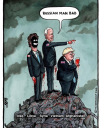
 Three stooges of war.png536 x 679 - 787K
Three stooges of war.png536 x 679 - 787K
 Three stooges of war.png536 x 679 - 787K
Three stooges of war.png536 x 679 - 787K -
Why doesnt Zelensky agree to Russia's terms to save his population? Why are we ecouraging the Ukrainians to commit suicide by supplying them more weapons? The stunning idiocy of this position is equally immoral and perverse.
-
The White House said that the United States is concerned about the coordination of Russia and China.
Howdy, Stranger!
It looks like you're new here. If you want to get involved, click one of these buttons!
Categories
- Topics List23,992
- Blog5,725
- General and News1,354
- Hacks and Patches1,153
- ↳ Top Settings33
- ↳ Beginners256
- ↳ Archives402
- ↳ Hacks News and Development56
- Cameras2,367
- ↳ Panasonic995
- ↳ Canon118
- ↳ Sony156
- ↳ Nikon96
- ↳ Pentax and Samsung70
- ↳ Olympus and Fujifilm101
- ↳ Compacts and Camcorders300
- ↳ Smartphones for video97
- ↳ Pro Video Cameras191
- ↳ BlackMagic and other raw cameras116
- Skill1,960
- ↳ Business and distribution66
- ↳ Preparation, scripts and legal38
- ↳ Art149
- ↳ Import, Convert, Exporting291
- ↳ Editors191
- ↳ Effects and stunts115
- ↳ Color grading197
- ↳ Sound and Music280
- ↳ Lighting96
- ↳ Software and storage tips266
- Gear5,420
- ↳ Filters, Adapters, Matte boxes344
- ↳ Lenses1,582
- ↳ Follow focus and gears93
- ↳ Sound499
- ↳ Lighting gear314
- ↳ Camera movement230
- ↳ Gimbals and copters302
- ↳ Rigs and related stuff273
- ↳ Power solutions83
- ↳ Monitors and viewfinders340
- ↳ Tripods and fluid heads139
- ↳ Storage286
- ↳ Computers and studio gear560
- ↳ VR and 3D248
- Showcase1,859
- Marketplace2,834
- Offtopic1,320



